
Writing a cookbook, especially for the first time, is no tranquil task. When you have Sohla El-Waylly’s following, the bar is even higher. The former Bon Appetit editor, who’s also been a judge on HBO Max’s The Big Brunch and hosts New York Times Cooking’s Mystery Menu series, embraced those expectations and churned out one of this decade's most anticipated and encyclopedic (656 pages!) cooking companions.
Aptly titled Start Here, the book is an open invitation for epicureans of any echelon to beef up their food knowledge and technique, with deep dives into ingredients like butter and nitty-gritty explorations of topics like temperature management. Although its size and scope may intimidate, El-Waylly’s reassuring asides and advice will help you avoid getting stuck in the dough of it all. To mark the book’s release today, she called up CULTURED to talk about her 100% kitchen home, her go-to comfort food, and never getting sick of food content.

Where are you and what's in your system right now?
I am in the East Village at home, and I have had oatmeal with blueberries and walnuts. I'm having oatmeal every day because I'm breastfeeding and it's supposed to help with milk production. That's too much info.
Not at all. Do you remember the first dish you ever made?
I have an idea of what some of the firsts were. I think they all came out of a package. Either jello instant pudding mix or box mix cake.
What about the first recipe you ever developed?
The first recipe I developed for a restaurant was during my first job as a pastry chef at Rotisserie Georgette. It was for a tarte tâtin. It is one of those dishes that's surprisingly difficult. It's just butter, sugar, vanilla, apples, and flour, but figuring out how to make it with the perfect level of caramel, how to get the crust really nice and tender, the apples really soft, and do that on a large scale is really challenging.
The first recipe I developed for home cooking was for chaat. I didn't want to do it because chaat is a very complex dish that means a lot of different things to a lot of different people in South Asia. But I was brown, so the editor was like, “You have to make chaat.” It was really scary and really intimidating because when you are developing a dish that's so underrepresented, you don't wanna misrepresent it. Chaat is also one of these dishes that no one actually makes at home because it’s so hard; you're frying multiple little components and making various chutneys and boiling potatoes and chickpeas. I did it resentfully, but I'm glad I did it because I learned about how to do a lot of thorough research.

Tell me about the research that you did for Start Here. What did that look like?
The full first year of working on the book was just research. What that meant for me was reading a lot of books. I started with one of my favorites, which is On Food and Cooking: The Science and Lore of the Kitchen by Harold McGee. It's a book I've read a million times, and I will continue reading a million times because it's very dense. Every time I read it, I learn something new. It's very science-heavy, and I loved starting there because I could learn about the science behind things and figure out how to translate it to the home cook in a way that actually helps them in the kitchen.
I then went through all kinds of history. There was a book that was just about butter, a book that was just about salt, a book that was just about garlic… And then more science books like the whole suite of books by the team over at Modernist Cuisine. I’d have conversations with my editor to just help me process information. I’d just call him to talk about wheat berries for too long, and he wouldn't even say anything back. I was also talking a lot to my husband. I'm really lucky because he's a chef. We're constantly bouncing ideas off each other, and it's really nice to have someone to talk to who does the same thing as you.
What did you surround yourself with that was not food-related when you were writing the cookbook?
I never get sick of food content. I decompress from food by indulging in other kinds of food content. One of my favorite things is to binge-watch Top Chef. I find it incredibly therapeutic. I love watching Beat Bobby Flay. I love listening to Dave Arnold's podcast. He's a food scientist, and he goes on really long rants—he'll talk about methyl cellulose for an hour. I just love hearing people talk about food. Our home is kind of 100% kitchen. The kitchen expands into the living room, into the bedroom. There's cookbooks and cooking equipment everywhere, and there's even ingredients in the closet.

The book is branded as culinary school without the student loans. Is there one thing you wish you knew when you were a student at the Culinary Institute of America?
I went into culinary school expecting to learn how to cook, but that's not really the point of culinary school. You get a base-level knowledge of some basic terms. You don't really come away with a lot of skills because so much of cooking is practice and you can do a lot of that practice on your own. I wish I knew that before making such a big financial and time investment. But on the flip side, I met my husband there. So that makes it worth it.
You just gave birth to your first child. Has being pregnant or, now, having a baby changed the way you think or see food?
It’s completely changed the way I think about food. For me, eating was more about having fun with friends. I didn't really think about how I would eat to nourish myself and that really changed because I was feeding this child inside of me. Now that I'm breastfeeding, I'm still feeding her. I think about protein intake, fiber, and getting lots of leafy green vegetables.
What do you want to see more and less of in the food world?
There's so many different people doing so many cool things. If you wanna learn about hand-pulled noodles, you can learn about that. If you wanna know about history, that's available to you. I love that there's a lot of legitimate knowledge to gain from food media right now. What I'd like to see less of is bro-y stunt food. I hate watching people slap things around, or make giant things. It feels disrespectful to food when you make an omelet with 300 eggs just because you think it'll get views. We all know that it's not gonna be eaten, so it forgets what the real purpose of food is.
What is the best thing that you've eaten going out recently?
I don't go out a whole lot, but I love the vanilla gelato from Superiority Burger. They sell pints now. That's been my go-to comfort food. When I feel overwhelmed from a crying baby, I’ll go get a pint of vanilla gelato. I even have some cones to really make it feel special. It's the most excitement I'm getting these days.

Between breakfast, lunch or dinner, what would you pick and why?
I'm a breakfast person. I wake up very hungry. It's when I have the biggest appetite, I really like to get up earlier than I need to so I can sit down and enjoy the morning with multiple beverages. There's always coffee or tea, a big glass of water, and maybe, if I'm feeling crazy, some kind of juice. I like it because early in the morning no one's around to bug you so you can really enjoy yourself and have a moment to yourself.
What do you save and splurge on in the kitchen?
I think it's important to splurge on your cooking fats. It actually adds quite a bit to everything you're doing. It's like the base note. It's the foundation of cooking. We try to get really good butter that we clarify ourselves for frying. For neutral fat cooking, we use a neutral oil called Five Acres. A lot of neutral oils get a little funky when you cook with them for a while; this is truly neutral, and it has a lot of antioxidants and good fats. We also have in our freezer a stash of lard and duck fat. Anytime we cook, any rendered fat like from bacon or chicken, we always save our schmaltz and our drippings. It adds so much flavor, and it's the foundation of everything you're cooking. I save on condiments. I like just Hellman's mayo, Heinz ketchup and yellow mustard. You can't go wrong.
What is the dish that represents where you're at in your life right now?
A one-pan of roast chicken with vegetables because I need things to be quick and efficient, but I still want some comfort.
For more foodie content, see our interviews with farm-to-table king Andrew Tarlow, food critic Matthew Schneier, and culinary alchemist Angela Dimayuga.

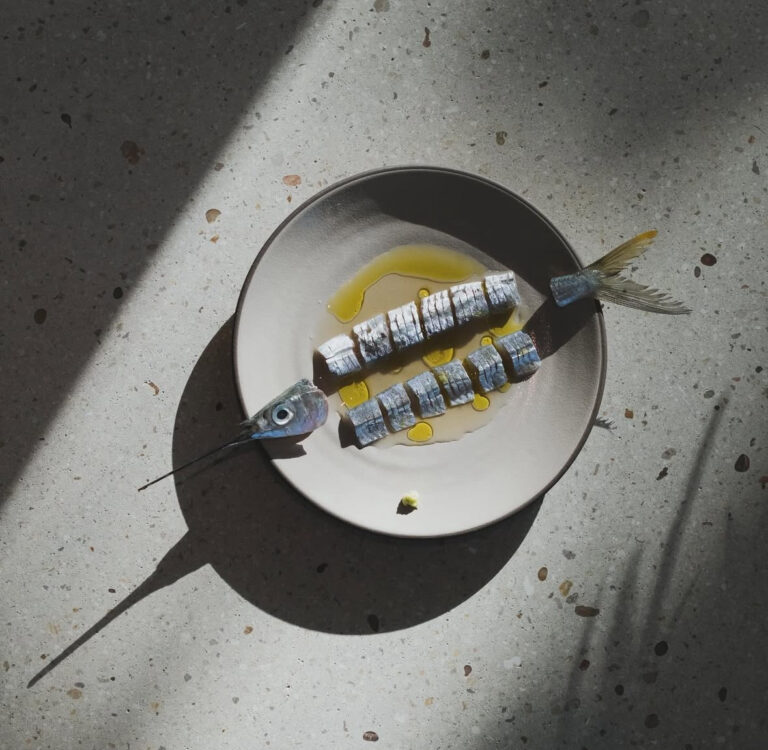
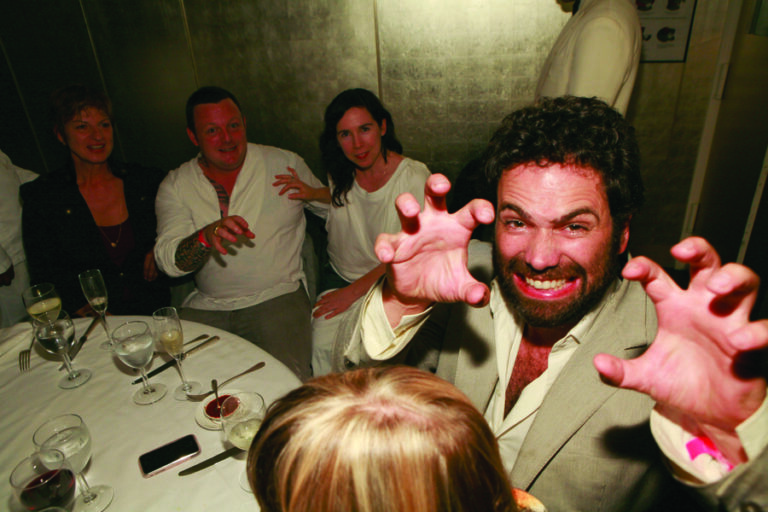

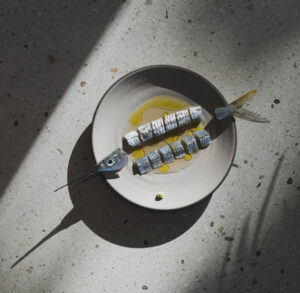
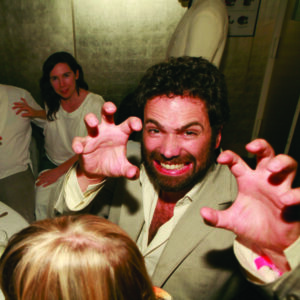
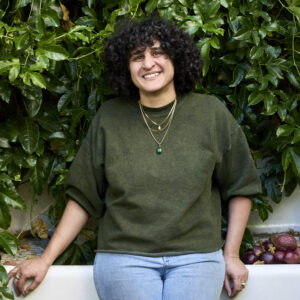



 in your life?
in your life?

